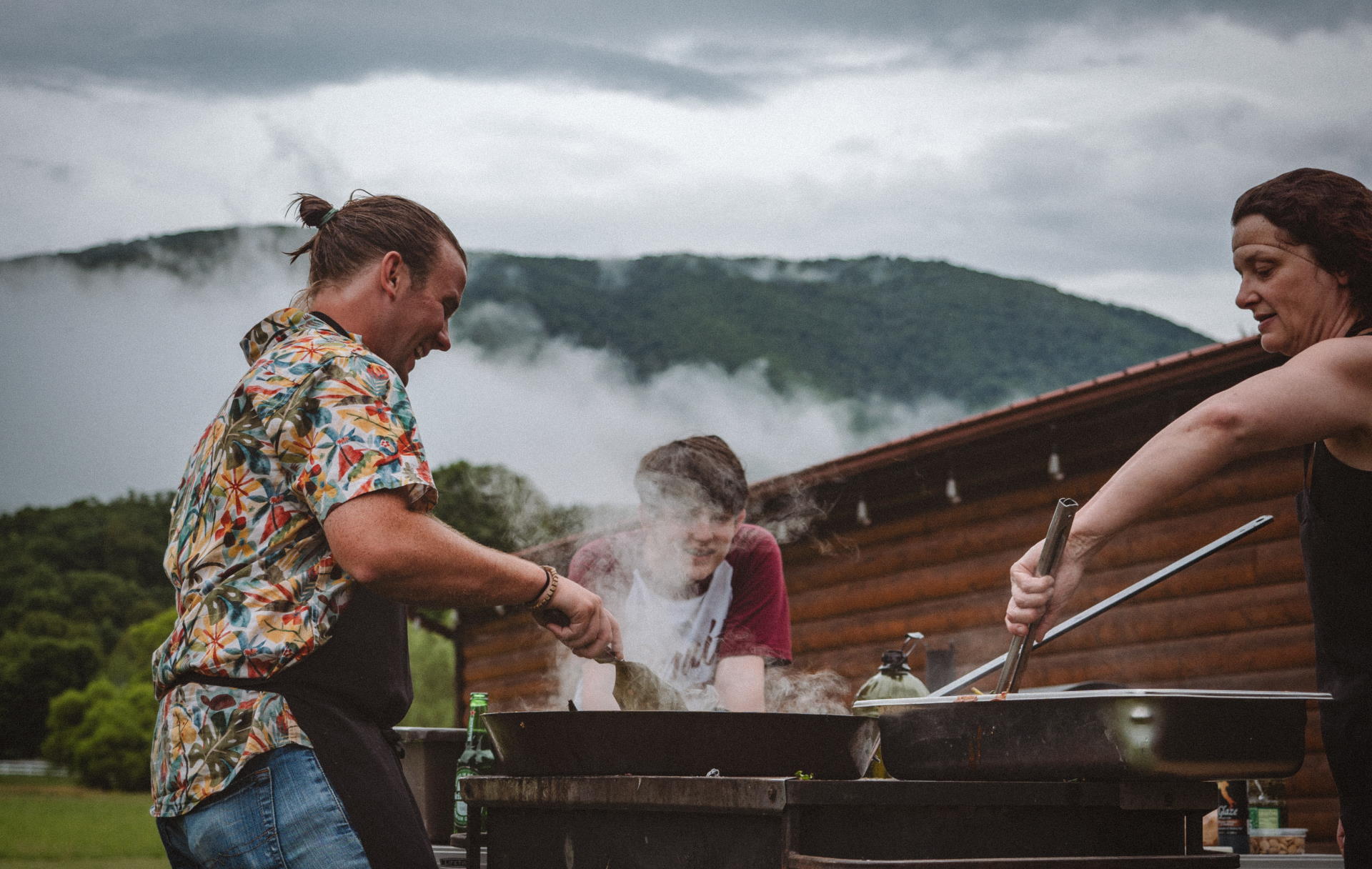Barbecue, often affectionately known as BBQ, is a culinary tradition deeply rooted in the social fabric of many cultures worldwide. Its popularity spans continents, and the essence of barbecue—slow-cooking meat over an open flame or hot coals—has evolved into a diverse array of styles, techniques, and regional specialties. The origins of barbecue are intricately woven into the history of cooking with fire, and its global appeal continues to grow.
The American barbecue tradition
The American barbecue tradition is deeply ingrained in the culinary and cultural landscape of the United States, representing more than just a method of cooking meat. It’s a cherished and diverse culinary art form that has evolved over centuries, shaping regional identities and fostering a sense of community. The role of barbecue in the U.S. is multifaceted, encompassing historical, regional, and social dimensions.
The origins of American barbecue can be traced back to the indigenous peoples who practiced slow-cooking methods, using pits and open flames to prepare meat. The term “barbecue” itself has diverse linguistic roots, reflecting the contributions of different cultural groups to this cooking tradition. As European settlers arrived, they encountered and adapted indigenous barbecue practices, incorporating their own flavors and techniques.
One of the defining features of American barbecue is its regional diversity. Different styles have emerged, each with its unique approach to meat, seasoning, and sauces. In the Southern United States, particularly in states like North Carolina, pork takes center stage, and styles such as pulled pork and whole hog barbecue are iconic. Texas is renowned for its emphasis on beef, especially brisket, often seasoned with a simple rub and slow-cooked over indirect heat. Kansas City barbecue is characterized by a variety of meats and a signature sweet and tangy tomato-based sauce. Memphis barbecue favors dry-rubbed ribs, allowing the flavor of the meat to shine.
American barbecue has become a cultural symbol, representing not only regional pride but also a shared American identity. The aromas of smoking meat, the sizzle of grills, and the distinctive flavors of barbecue sauces are woven into the collective memory of the nation. Barbecue is often associated with leisure, celebration, and the joy of shared meals, making it a quintessentially American culinary experience.
Popularity and social aspects
Barbecue, with its origins deeply rooted in ancient cooking practices, has grown into a globally celebrated culinary phenomenon. Its popularity extends far beyond the act of grilling meat; it embodies a cultural and social experience that transcends borders and brings people together. The art of barbecue is woven into the fabric of societies, serving as a catalyst for social gatherings, community events, and shared traditions.
Barbecue’s global appeal is undeniable, as it resonates with diverse cultures worldwide. From the smoky barbecue pits of the Southern United States to the vibrant street grills of South Korea and the traditional asados of Argentina, each region has its unique take on slow-cooking meat over an open flame. Barbecue has become a universal language, celebrated for its ability to transform simple ingredients into flavorful, aromatic masterpieces.
At its core, barbecue is a communal experience that goes beyond the mere act of preparing food. It is synonymous with gatherings, bringing people together in a shared celebration of flavors, aromas, and traditions. Whether it’s a backyard barbecue, a beachside grill, or a street food festival, the social aspects of barbecue create an atmosphere of conviviality and togetherness. And in many cultures, the backyard barbecue is a quintessential social event. Friends and family come together around a grill, sharing stories, laughter, and, of course, delicious food. The act of grilling becomes a shared responsibility, with everyone contributing to the experience, from marinating meat to tending the fire. Backyard barbecues are often impromptu, fostering a laid-back and inclusive environment.
Beyond individual gatherings, barbecue plays a central role in community celebrations and events. Barbecue competitions, festivals, and fundraisers draw people from all walks of life, creating a sense of community pride. These events showcase not only the culinary skills of pitmasters but also the unique regional flavors and techniques that make each barbecue tradition special. And maybe one of the most remarkable aspects of barbecue’s social influence is its inclusivity. Barbecue brings people of different backgrounds, ages, and culinary preferences to the same table. Whether enjoying classic American barbecue, exploring Brazilian churrasco, or savoring Middle Eastern kebabs, the diversity within the world of barbecue reflects the richness of global culinary traditions.
In essence, barbecue’s popularity is not merely about cooking meat; it’s about creating shared moments and building connections. The social aspects of barbecue, from backyard gatherings to community celebrations, underscore its role as a unifying force that brings people together around the simple pleasure of good food and shared experiences.
